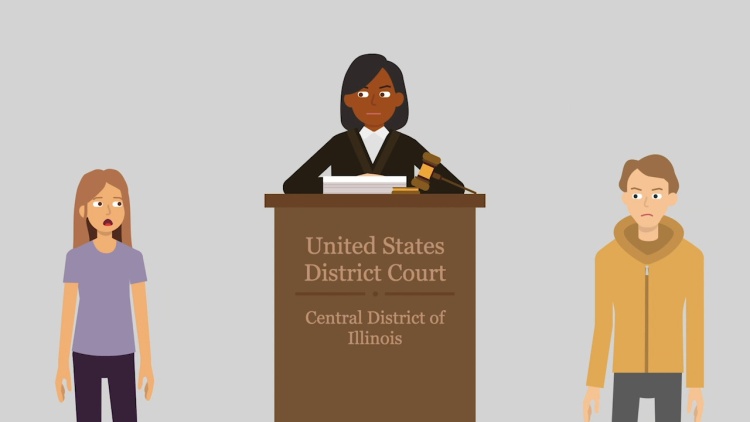Doe v. Smith
United States Court of Appeals for the Seventh Circuit
429 F.3d 706 (2005)
- Written by DeAnna Swearingen, LLM
Facts
In a complaint filed in the United States District Court for the Central District of Illinois, Jane Doe (plaintiff) alleged that Jason Smith (defendant) secretly videotaped the two of them engaged in sexual intimacy. Doe claimed that she did not know about or consent to being filmed. Doe claimed that Smith later shared the video with other students at his high school. Doe filed suit in federal district court under federal question jurisdiction, asserting that Smith had violated the federal wiretapping statute. 18 U.S.C. §§ 2150-22. Doe stated that the federal statute provides a remedy for anyone whose “wire, oral, or electronic communication is intercepted, disclosed or intentionally used . . . ” and that Smith had intentionally disclosed the video camera recording in violation of the law. Doe did not specifically allege that the video recording constituted an “interception.” In addition to the federal claim, Doe also set forth several state law claims against Smith for eavesdropping, intentional infliction of emotional distress, invasion of privacy, and battery under the court’s supplemental jurisdiction. Smith filed a Rule 12(b)(6) motion under the Federal Rules of Civil Procedure (FRCP) for failure to state a claim upon which relief can be granted. The district court dismissed Doe’s suit, because the complaint did not specifically state that Smith’s recording was an interception covered by the federal wiretapping statute. Doe appealed to the United States Court of Appeals for the Seventh Circuit.
Rule of Law
Issue
Holding and Reasoning (Easterbrook, J.)
What to do next…
Here's why 907,000 law students have relied on our case briefs:
- Written by law professors and practitioners, not other law students. 47,100 briefs, keyed to 996 casebooks. Top-notch customer support.
- The right amount of information, includes the facts, issues, rule of law, holding and reasoning, and any concurrences and dissents.
- Access in your classes, works on your mobile and tablet. Massive library of related video lessons and high quality multiple-choice questions.
- Easy to use, uniform format for every case brief. Written in plain English, not in legalese. Our briefs summarize and simplify; they don’t just repeat the court’s language.





